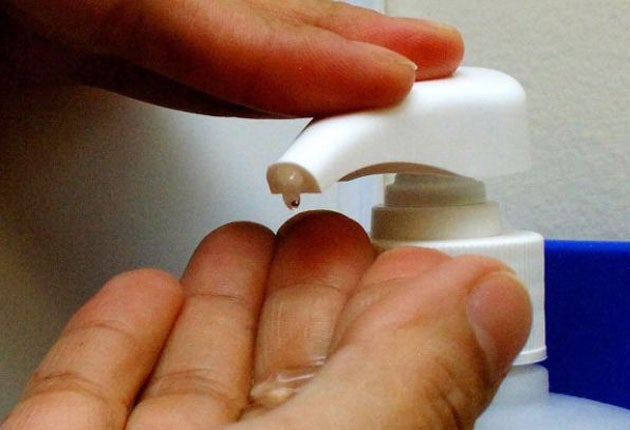New superbug spreads to UK hospitals

Your support helps us to tell the story
From reproductive rights to climate change to Big Tech, The Independent is on the ground when the story is developing. Whether it's investigating the financials of Elon Musk's pro-Trump PAC or producing our latest documentary, 'The A Word', which shines a light on the American women fighting for reproductive rights, we know how important it is to parse out the facts from the messaging.
At such a critical moment in US history, we need reporters on the ground. Your donation allows us to keep sending journalists to speak to both sides of the story.
The Independent is trusted by Americans across the entire political spectrum. And unlike many other quality news outlets, we choose not to lock Americans out of our reporting and analysis with paywalls. We believe quality journalism should be available to everyone, paid for by those who can afford it.
Your support makes all the difference.International travel and medical tourism helped the spread of drug-resistant bacteria that could lead to the end of antibiotics, scientists warned today.
A new gene, NDM-1 (New Delhi metallo---lactamase), emerged which allows bacteria to be highly resistant to almost all antibiotics, the scientists said.
NDM-1 spread in India, Pakistan, and Bangladesh.
But it was also found in 37 patients from the UK, who travelled to India or Pakistan for medical procedures including cosmetic surgery, according to an article published in The Lancet.
"The potential of NDM-1 to be a worldwide public health problem is great, and co-ordinated international surveillance is needed," Timothy Walsh of Cardiff University and his international colleagues wrote.
The gene was mostly found in E Coli, a common cause of urinary tract infections and pneumonia, which is highly resistant to antibiotics.
The authors said it could be easily copied and transferred between different bacteria, suggesting "an alarming potential to spread and diversify among bacterial populations".
The paper said several of the UK patients had travelled to India or Pakistan for surgical procedures within the past year.
They wrote: "India also provides cosmetic surgery for other Europeans and Americans, and it is likely NDM-1 will spread worldwide."
Study co-author Dr David Livermore, director of antibiotic resistance monitoring at the Health Protection Agency, said: "The findings of this paper show that resistance to one of the major groups of antibiotics, the carbapenems, is widespread in India.
"This is important because carbapenems were often the last 'good' antibiotics active against bacteria that already were resistant to more standard drugs.
"We have now also identified bacteria with this type of resistance - NDM - in around 50 patients in the UK.
"Most, not all, had previously travelled to the Indian subcontinent, and many had received hospital treatment there.
"International travel gives a great potential for spread of resistant bacteria between countries.
"Few antibiotics remain active against these bacteria.
"Their spread underscores the need for good infection control in hospitals both in the UK And overseas, and the need for new antibiotic development."
A Department of Health spokesman said: "We are working with the Health Protection Agency on this issue. The HPA alerted the NHS in January and July last year to be vigilant about these bacteria and take appropriate action where necessary.
"Hospitals need to ensure they continue to provide good infection control to prevent any spread, consider whether patients have recently been treated abroad and send samples to HPA for testing.
"So far there has only been a small number of cases in UK hospital patients. The HPA is continuing to monitor the situation and we are investigating ways of encouraging the development of new antibiotics with our European colleagues."
Join our commenting forum
Join thought-provoking conversations, follow other Independent readers and see their replies
Comments